by Louisa.H
Pouran Derakhshandeh is one of the few Iranian female filmmakers who has been active in making narrative films continuously. In most of her films, she focuses on family themes and uses an emotional and often popular style.
Derakhshandeh deals with the problems of children and teenagers who suffer from mental and physical disabilities in a significant number of her works. Of course the tendency towards such issues in today’s cinema is commendable, but it does not intrinsically lead to the production of good films. Eternal Children (2006), a film recently released by Pouran Derakhsandeh is an example of this fact and offers no new message to the audience except a good actress named Elham Hamidi.
Iman and Negar, two compatible young people, intend to get married, but someone stands between them. After showing unnecessary mysterious scenes, we realize that this obstacle is no one but Iman’s younger brother, Ali, who has Down syndrome and has a strong emotional dependency on Iman. Down syndrome is a type of chromosomal disorder that causes mental disability.
Although the public calls this group of mentally disabled people “Mongolian” because of their Mongolian appearance, Eternal Children avoids using this word and tries to explain to the audience that the emotional needs of such people are the same as normal people and rehabilitation can increase their adaptation to environment in its educational parts.
It is Negar who portrays the educational parts (played by Elham Hamidi, who I will talk about her stunning performance later), a girl who is pictured too good and self-sacrificing. After a temporary hesitation, she tries to introduce her parents to this issue through films she has collected about people with Down syndrome so she can persuade them to give their consent to the marriage but Negar’s parents don’t agree after an unsuccessful meeting with Ali.
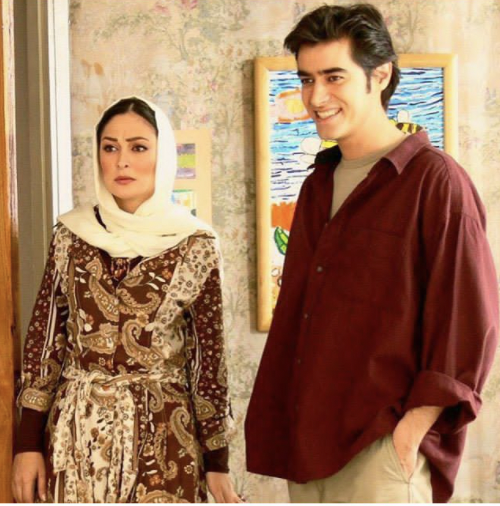
Now, the logical question that comes to mind is, why should Negar give up on love because of her parents, if she is willing to accept Ali alongside Iman? Since the topic of marriage is a function of the central theme of the story in this film, that is to say the disability of one of the family members, it is natural to have a fleeting glimpse of it, but is it really convincing? Well, the current cinema has accepted the abnormal culture that has affected young people and parents and even promotes it instead of challenging it.
The investor of Eternal Children is a rehabilitation center so it is obvious that educational tips and promotional photos for this center are included. But the lack of strict supervision by a professional producer (other than the filmmaker herself) caused this film to swing between dramatization (narrative style) and education (oratorical style) and moved forward with a weak and incoherent story.
Eternal Children is based on speech like most Iranian films. Production costs are reduced and writer, director and production team no longer need to go through the twists and turns of creating key scenes in such films.
The next problem comes with the scenes that are filled with silence and emotions and tensions are not objectified. This is where the dialogue or facial expressions of actors must compensate for the existing defect but they don’t, especially, if actors are not capable of expressing such complex emotions, which they are not. This is true about Iman’s role, although we can separate Elham Hamidi’s performance from other actors. Unlike Shahab Hosseini, who had one of his weakest performances in this film, Elham Hamidi played one of the most memorable roles of her career, which the author believes we will see and hear more from this Iranian talented actress in the future.
Elham Hamidi is the only actor who seems to understand the character as if she lived with a child with Down syndrome for years and her behaviors with the child don’t bother the audience. Her feelings are enough. She has controlled her anger and affection towards the child and this moderation has been well observed in Elham Hamidi’s performance even in her relationship with her fiancé. Undoubtedly, she has become a famous and popular figure in the Middle East cinema and television because of her own capabilities. But other actors don’t try to solve the characterization problems and it seems they are forced to play their roles.
For example, in the scene where Iman tries to get the consent of Negar’s father in a final effort, he manages to impress her father by saying that he will not fall in love with anyone else after Negar and her father gives his consent and says, “You know it yourself!”. The problem is easily solved with one meeting and with the help of percussion instruments, and then the film goes to the second part.
Ali, who is the only amateur actor in this film, has escaped from the nursing home where he was temporarily hospitalized. The new problem is how they want to find Ali. A mentally disabled person, who is alone, has come down from the northernmost part of Tehran, but before he could reach the hustle and bustle of the city center, a woman who is a drug dealer, tricked him in Jamshidiyeh Park and took him to the addicts’ place on the outskirts of city so she could abuse him to sell drugs later. Naturally, Ali’s entry into this sick environment is tense, but the mise en scene (decoupage, acts and montage) is so dark that it wastes the new energy.
On the other hand, there is another question. Wouldn’t it be better to put a girl instead of Ali in the role of mentally disabled person from the very beginning? Isn’t it true that girls are more vulnerable than boys? We have heard and read about the rape of mentally disabled girls many times. A few years ago, the painful execution of a teenage girl in the north of the country shocked the public conscience. By killing her, rapists could run away and the judge, who estimated that she was mature, used her mental disability as an excuse for her execution (but it could be a reason to save her).
In such a terrible situation, why shouldn’t a female director with a professional background use her position and reputation to portray the dangers threatening such girls or at least show a part of it to the audience? If our filmmakers do not have the motivation and possibility to criticize the inhuman and cruel laws in the country, why do they even avoid talking about the consequences of such laws that affect people? The cinema which is neither informative nor entertaining is of no use to the nation. It may be the reason why people are unwilling to go to the cinema.
Let’s go back to the plot twist. Fake compassion of the woman, who is a drug dealer, eventually saves Ali’s life, but he again wanders the highways through the night. The fact that the police do nothing in the meantime and do not take a missing disabled person to his family is an implicit criticism but it isn’t emphasized in a clever way. The filmmaker, who has not come up with a good solution to bring Ali back to his family, inevitably put him into Resalat Tunnel, so after moaning and saying “God! God!” in vein, a car hits him and runs away, and that’s how the film ends.
No one knows why poor Ali has to be hospitalized for a long time and suffer with a broken arm and leg. It was Iman who left Ali at the anxious and scary environment of the nursing home because of his own needs and Ali could escape from there due to staff carelessness. Part of the audience are children and teenagers so why Ali is punished instead of these wise people who are to be blamed?
In conclusion, there is no melodramatic justice at the end of this moral film, and the optimistic ending cannot strike the right note.


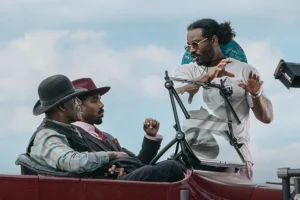
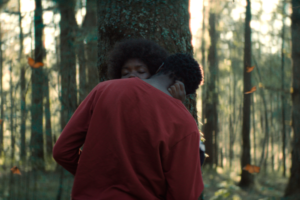

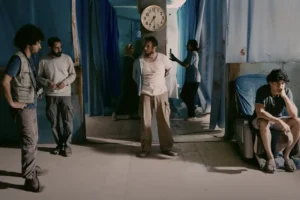

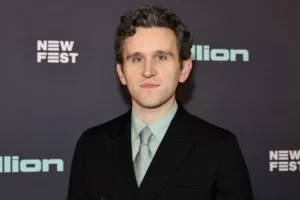
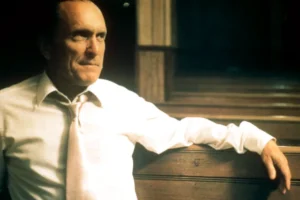

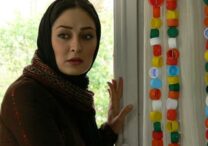
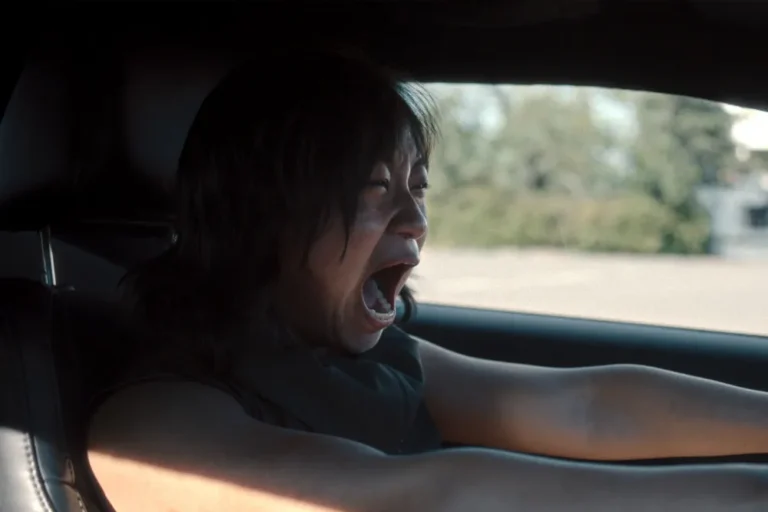

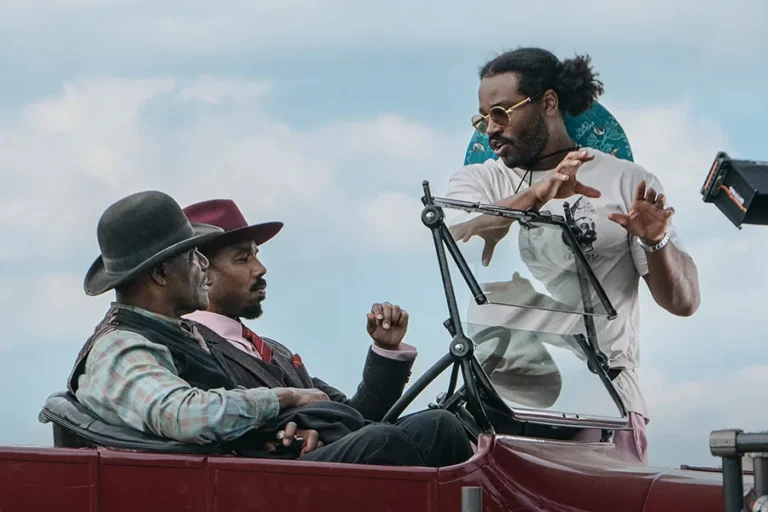


+ There are no comments
Add yours